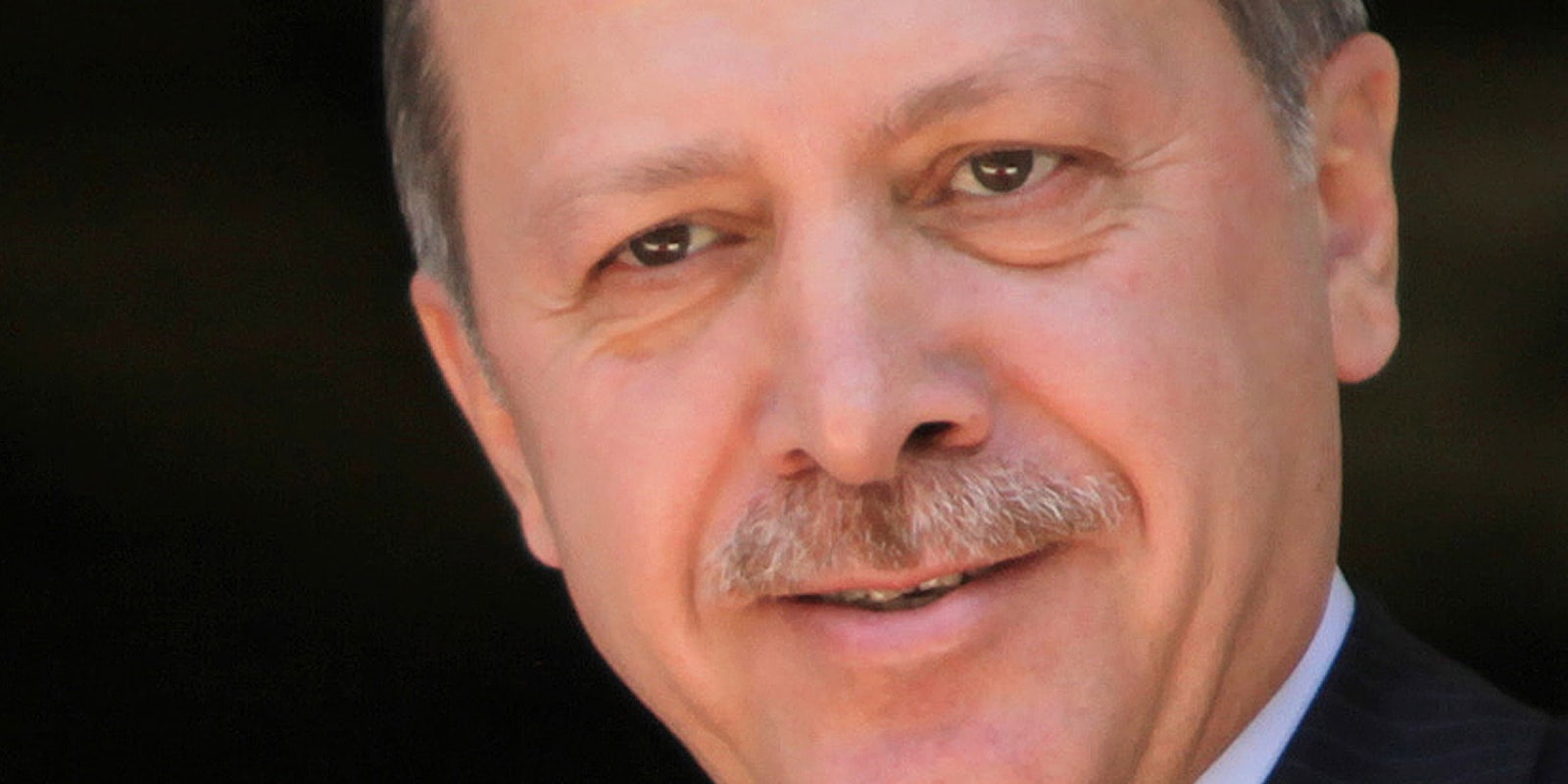Ebru Umar, a Dutch columnist of Turkish descent, was recently detained during her vacation to Turkey for ‘insulting’ Turkey’s president with her tweets.
After spending the night in police custody, Umar tweeted on Sunday that she has been released, but the court has barred her from leaving Turkey. She later said that her tweets and her phone calls are under investigation.
I m sort of “free”, am at home but am not allowed toe leave the country. My tweets are under investigation. As are all my phone calls
— Ebru Umar (@umarebru) April 24, 2016
Umar is a feminist and an atheist, known for her critical pieces towards Islamic practices and politics in Turkey. In 2013, she wrote an article criticizing loud azan (call for morning prayers from mosque loudspeakers) at 4 am in Turkey. She received hundreds of death threats over social media from Turks, including young Muslims in the Netherlands.
Last week, in her column at the Dutch newspaper Metro, Umar compared Dutch Nazi Party (NSB) practices during World War II to the Turkish Consulate’s call for Turks in Netherlands to rat out anyone who ‘insults’ President Recep Tayyip Erdoğan. Criticizing the Turkish-Dutch who youth “enjoying the freedom in the Netherlands” but root for Erdoğan’s policies, she wrote:
“To those Turkish-Dutch people who support the call by the Consulate and want to play NSB by telling the Dutch in the Netherlands what to say about Sultan Erdogan —the most megalomaniac dictator the Turkish Republic has seen since its establishment in 1923, I’d like to say one thing: Go fuck yourself! And give one turn to your beloved Erdoğan as well.”
When she arrived in Kuşadası, Turkey, for vacation, Umar tweeted a photo of a huge Turkish flag and commented on the increasing nationalism in Turkey with the hashtag #fuckerdogan. That tweet triggered an online lynch campaign against her. Compared to previous lynch mobs organized by Erdoğan’s trolls, a few influential pro-government accounts used their new tactic of snitching on Twitter users to Turkish police, which often leads their arrest under largely defined “terror propaganda” or “denigrating Turkish nation” articles in the Turkish law.
This is exactly what happened when @tahaun, a central user in Erdoğan’s online campaign and husband to Erdoğan’s secretary, wrote several tweets claiming Umar denigrated the Turkish flag and insulted Erdoğan, and he called for authorities to “detain this creature this evening.”
https://twitter.com/tahaun/status/723953445091311616
Indeed, the police detained Umar based on a “complaint from a citizen,” as the Governor of Aydın later confirmed to an opposition MP, Barış Arkadaş. Arkadaş added, “It is anachronic to detain people by house raids in the middle of the night. It is a form of intimidation.”
Dutch Prime Minister Mark Rutte tweeted that he had contacted Umar via phone and the Dutch Ministry of Foreign Affairs was assisting her. But since Umar has Turkish citizenship, Turkey is not required to deport her as it did to Vice News reporters.
Heb tel contact gehad met @umarebru gisteravond. Onze ambassade heeft nauw contact met haar voor bijstand, Koenders en BZ zitten er bovenop.
— Mark Rutte (@MinPres) April 24, 2016
Umar’s detention coincides with German Chancellor Angela Merkel’s visit to Turkey alongside the European Council president, Donald Tusk, and European Commission Vice President Frans Timmermans on the issue of Syrian refugees. But the detention of Ms. Umar can be more than a coincidence.
Turkey-German relations became strained after a satirical video criticizing Erdoğan’s authoritarianism was broadcast on German television. Things got worse when Erdoğan sued another German comedian for an ‘insult.’ Turkey reciprocated by detaining and deporting German reporter Volker Schwenck last week. During a foreign leaders visit, Turkey deported Reuters photographer Giorgos Moutafis, who had worked in Turkey many times covering the refugee crisis.
Last month, Turkey detained and deported feminist Catalan MP Mireia Vehí days before a European Union summit. And earlier in September, Dutch journalist Frederike Geerdink was deported during the visit of Dutch Minister of Foreign Affairs.
Erdoğan is known for demonstrating absolute power on domestic politics, and when domestic and foreign matters become intertwined, the president often targets international figures, journalists in particular.
According to data collected by Journalists Union of Turkey, there are 32 journalists in Turkish jails and 14 pending trial, most of whom are Kurdish reporters arrested in the last four months for “terror propaganda.” According to the latest Press Freedom Index by Reporters Without Borders, Turkey fell to 151th among the 180 countries analyzed.


